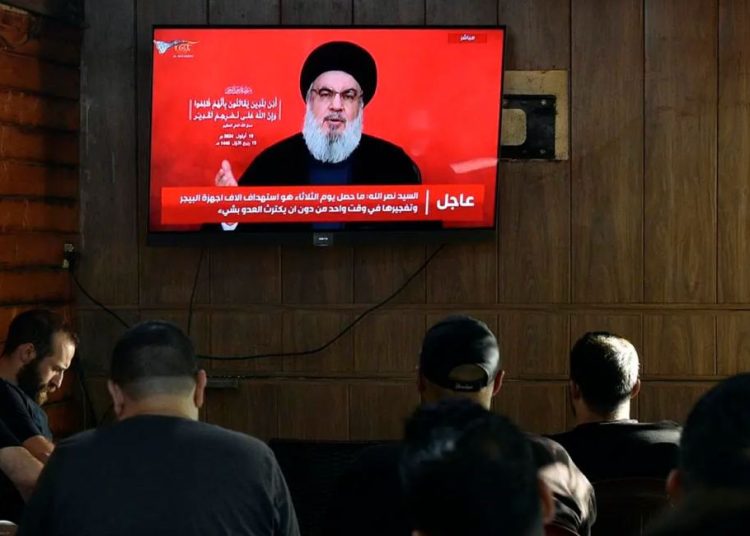Following significant developments, the words of Hezbollah’s chief are closely watched by many. However, this time, it appears that what he left unsaid might be even more important.
The explosion of communication devices in Lebanon has dominated global media coverage over the past two days. Various analyses have emerged regarding the causes and motivations behind these explosions.
Today, media and observers eagerly awaited the reaction and speech of Hassan Nasrallah, the Secretary General of Hezbollah in Lebanon, to predict the course of upcoming events.
In his address, Nasrallah declared that Israel has crossed all red lines, equating this action to a declaration of war that will be met with just punishment.
Despite Israel attacking Hezbollah positions in Lebanon just minutes before Nasrallah’s speech, he asserted that the series of explosions did not impact Hezbollah’s command and control capabilities in the field.
The continuation of such Israeli attacks suggests that the intended goal of dismantling Hezbollah’s communication network and field command has not been achieved. These attacks are seen more as symbolic gestures aimed at sending a message and continuing psychological warfare. If these attacks were part of an all-out war, the situation would be different.
Nasrallah acknowledged that the recent events were a serious and unprecedented blow, but he noted that investigations into the dimensions of this attack are ongoing. Hezbollah appears to be reviewing its security and intelligence measures and procedures to prevent a recurrence of such incidents.
Israeli sources indicate that Israel is attempting to enter Lebanese territory to create a security belt, allowing the residents to return to the north. Hezbollah chief warned that Israel would face a hell and severe consequences if it made this mistake, inviting Israeli authorities to this challenge.
While issuing warnings, Nasrallah maintained ambiguity regarding Hezbollah’s retaliatory measures against Israel. He did not provide details of Hezbollah’s response, stating that only a limited circle would be informed, and the others would learn about it through the news. This policy of ambiguity serves as part of psychological warfare and maintains the unpredictability of retaliatory actions.
Following significant developments, the words of Hezbollah’s chief are closely watched by many. However, this time, it appears that what he left unsaid might be even more important.
Nasrallah aimed to present a broader perspective, highlighting Israel’s lack of success in the strategic field. He emphasized that daily developments and every event should be viewed and evaluated in relation to strategic and major developments.
One of the main objectives of Israel’s actions against Lebanon, including the recent explosions, is to halt attacks from the northern front. A significant part of Nasrallah’s speech today was his emphasis that these attacks will not cease until the conflict in Gaza and the West Bank ends.






